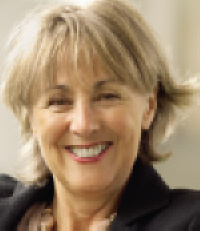How can technology not dominate but enable and improve people�s lives? How can it be part of the solution and not part of the problem? That�s the lead question leading Philips� innovations strategy. Josephine Green, Director of Trends & Strategy at Philips Design, explains, how Philips has moved from being a technology led company to a people focused company. Because Philips got aware, that technology focused innovation can diminish as much as enhance peoples lives.
Â
We are living an a technological world � and we expect it to be even more a high-tech world in the future. But the big question is: How much technology is enough? How much more can we adopt as human beings?
Perhaps the issue is not so much about how much technology can we adopt and when is more too much, but rather what kind of relationship do we need to think about in terms of people and technology. In other words how can technology not dominate but enable and improve people�s lives? Put simply how can it be part of the solution and not part of the problem. It is more about an ecology between people and technology in which technology unobtrusively enables and facilitates our everyday lives in ways that makes sense. It�s about quality not quantity.
Do technology companies need a self understanding? It is interesting to see, that Philips moved from �let�s make THINGS better� to �Sense and Simplicity�?
First and foremost Philips has moved from being a technology led company to a people focused company. Just thinking in terms of technology research and technology innovation does not guarantee a better world or a better life. On the contrary such technology determinism can diminish as much as enhance peoples lives. It is against this background that Sense and Simplicity needs to be understood. What is sense making and what makes sense to people and society and how can this sense making be re-enforced through simplicity. It is about our  commitment to helping improve people�s lives through meaningful and relevant innovation. Technology becomes the enabler and not the driver.
What is so differently on the way Philips manages its innovation?
In a technology led company research is carried out in the R&D labs and inevitably leads to technology innovation by experts. However when you shift the emphasis from technology to people then you get a lot more socio-cultural and people research leading to more social and user centred innovation. For Philips to be effective and successful we are re-addressing why we innovate, what we innovate, how we innovate and who innovates. Innovation in the future cannot only be for people but also by people.
You will be keynote speaker at the 2nd European Futurists Conference Lucerne. What will we learn from you?
Hopefully I can share with you the changing face of design and the changing face of innovation, some of the why, the what, the how and the who of innovation and how this plays out in the Philips context.
Â
Josephine Green is Senior Director of Trends and Strategy at Philips Design, Royal Philips Electronics. Philips Design is a creative force of some 450 professionals and more than 25 nationalities. Its headquarters are in Eindhoven, the Netherlands, and it has 14 branch studios in various parts of Europe, the USA, and the Asia-Pacific region. It operates as an autonomous unit within Philips Electronics and provides a full range of design services to a highly diverse portfolio of clients. Josephine Green is responsible for directing research into Society, Cultures and People and its implementation into the Strategic Futures Programme. This Programme helps customers think about and implement a human focussed approach to innovation and new value creation. The programme researches emerging socio-cultural values, new technologies and new business models, identifies strategic opportunities and articulates these through design. She is a member of the Advisory Board of the European Futurists Conference Lucerne.
Â
Â
Â
Â
Â












